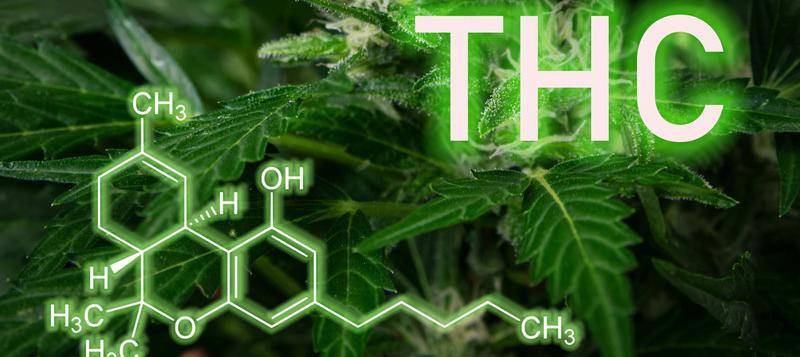THC Cannabinoid: Everything You Need to Know
THC, or tetrahydrocannabinol, is a well-known cannabinoid famous for its psychoactive effects and potential therapeutic benefits.
THC, or tetrahydrocannabinol, is a well-known cannabinoid found in cannabis. It is most famous for its psychoactive effects, but there's much more to learn about this fascinating compound. Let's dive into the world of THC and explore its history, effects, legal status, and more.
What is THC and Where is it Found?
THC is a natural compound found in the cannabis plant. It is primarily located in the resin glands of the plant's flowers. The discovery of THC dates back to the 1960s when Israeli chemist Dr. Raphael Mechoulam first isolated and identified it. Since then, THC has become the most studied cannabinoid, known for its ability to interact with the human body's endocannabinoid system. THC is found in varying concentrations in different strains of cannabis, often referred to as "sativa" or "indica" strains.
What Does the THC Cannabinoid Do?
THC interacts with the body's endocannabinoid system, specifically binding to CB1 receptors in the brain. This interaction produces the well-known "high" associated with cannabis use. The effects of THC can vary, but they often include euphoria, relaxation, altered perception of time, and increased appetite. It may potentially help with symptoms like pain, nausea, and insomnia, but more research is needed to confirm these benefits. Always consult with a healthcare professional before using THC for any health condition.
THC Legal Status in the US
The legal status of THC in the United States has evolved over the years. While cannabis remains federally illegal, many states have legalized it for medical or recreational use. Recently, there has been significant news regarding the reclassification of cannabis by the DEA. This reclassification could potentially change how cannabis is regulated and accessed across the country. For instance, some states that currently have strict cannabis laws might reconsider their stance, leading to more widespread legalization and acceptance. Moreover, this change might also pave the way for more robust research into the medical benefits of THC and other cannabinoids. Read more about this development here.
Delta 9 vs. Delta 8
Delta-9 THC is the most common and well-known form of THC found naturally in cannabis. It is often referred to as "regular” or “natural" THC. Delta-9 THC products are highly regulated and undergo independent testing. Delta-9 is also well studied. In contrast, Delta-8 THC and other hemp-derived variants like Delta-10 are less understood and are typically unregulated, posing potential health risks. These lesser-known cannabinoids have been gaining popularity due to their manufactures exploiting a loophole / gray area of the legislation regarding hemp and making them available for shipping or selling them in store. However, the lack of regulation means that products containing Delta-8 and Delta-10 THC can vary widely in purity and potency, raising concerns about their safety and efficacy. The FDA has not approved Delta-8 and other derivatives, and strongly recommends avoiding them (there have been several thousand cases of exposure). Delta-8 and other hemp derived cannabinoids are prohibited in Colorado and several other states. Read more about Delta-8 THC products and their risks.
Combining THC and CBD
THC and CBD, another prominent cannabinoid, can interact in interesting ways. When combined, CBD can potentially modulate the effects of THC, making the experience more balanced. This combination may be beneficial for those seeking relief without the intense psychoactive effects of THC alone. Research suggests that CBD may counteract some of the anxiety or paranoia that THC can induce, providing a more comfortable experience for users. Additionally, products that combine THC and CBD are becoming increasingly popular for their potential therapeutic benefits, including pain relief, anti-inflammatory effects, and anxiety reduction. Read more about how THC and CBD interact.
THC Research
Research on THC is ongoing, with studies exploring its potential therapeutic benefits and effects. Recent research has focused on THC's potential to alleviate chronic pain, reduce inflammation, and even its role in mental health treatments. For instance, studies have shown promise in using THC to treat conditions such as multiple sclerosis, neuropathic pain, and PTSD. Additionally, ongoing research is looking into the neuroprotective properties of THC and its potential to aid in the treatment of neurodegenerative diseases like Alzheimer's. However, it is essential to approach these findings with caution and consult healthcare providers for guidance.
Trivia
- Did you know that THC was first isolated in 1964 by Dr. Raphael Mechoulam?
- The highest recorded THC concentration in a cannabis plant was over 30%.
- Ancient cultures used cannabis in religious ceremonies, believing it had spiritual properties.
Conclusion
THC is a fascinating cannabinoid with a rich history and a significant impact on both science and culture. While it offers potential benefits, it's crucial to approach its use with caution and stay informed about the latest research and legal developments. Always consult with a healthcare professional to understand how THC might affect you.
Health Disclaimer: The information provided in this article is for educational purposes only and should not be taken as medical advice. Always consult with a qualified healthcare provider before using cannabis, particularly if you have pre-existing conditions or are taking medication.





















